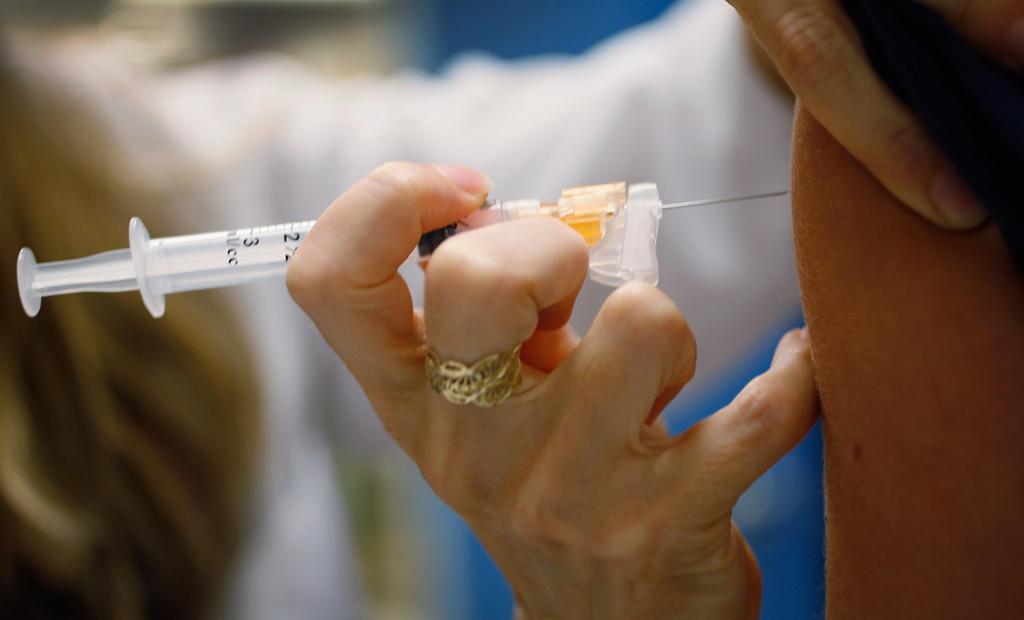HPV virus is linked to a third of throat cancer cases
Pediatrician Judith L. Schaechter gives an HPV vaccination to a 13-year-old girl. The vaccine for human papillomavirus, or HPV, is given to prevent a sexually transmitted infection that can cause cancer.
A new study has linked HPV or human papillomavirus to a third of all throat cancers, indicating that the HPV vaccine may provide patients with protection both below and above the belt.
The study, published in the Journal of Clinical Oncology, began by looking at a study encompassing 938 patients who had either head and neck, oesophageal (gullet) or oropharyngeal cancers. These were compared with samples from 1,599 control subjects, who didn't have any form of cancer.
Read more from GlobalPost: Jenny McCarthy's hiring on "The View" raises health concerns
The researchers found that 35 percent of those diagnosed with throat cancer carried antibodies to E6, one of the key proteins associated with HPV, writes the BBC.
The antibodies are capable of damaging the cell protection system that helps prevent cancer from developing, and researchers found that fewer than 1 percent of the cancer-free test subjects carried them.
There was one trace of good news for HPV throat cancer sufferers: they were more likely to survive than those who developed thraot cancer due to other factors, such as drinking or smoking.
Eighty-four percent of antibody carriers who also had cancer were alive five years after diagnosis, compared with a 58 percent mortality rate for those without the antibody.
In another recent study conducted by the International Agency for Research on Cancer, researchers in Costa Rica gave 7,400 women aged 18 to 25 either the HPV vaccine, or a vaccine against hepatitis A.
Four years later, they found that the women who had recieved the HPV vaccine had 93 percent fewer HPV infections than those women who had recieved the control, indicating that the vaccination is indeed highly effective.
It's unkown if the vaccine could produce similar oral protection benefitsin men, but it's likely. “The results of our study demonstrated protection against oral HPV infection in women," said leady study author Dr Rolando Herrero in an IARC press release.
"If similar results are observed in men, vaccination of boys may become an important public health measure in areas where oropharyngeal and other HPV-related cancers are relatively common in men."
“If the HPV vaccine can also protect against oral HPV infections and cancers, then it could have a broader potential protective effect, but we don’t have enough research yet to tell us, said Sara Hiom, Cancer Research UK’s director of health information to HealthCanal.
"At the moment we know it protects against pre-cancerous changes in the cervix, vulva, vagina and anus, as well as reducing the risk of genital warts. So it’s important to reduce inequalities, and to aim for high uptake of the vaccine."
Every day, reporters and producers at The World are hard at work bringing you human-centered news from across the globe. But we can’t do it without you. We need your support to ensure we can continue this work for another year.
Make a gift today, and you’ll help us unlock a matching gift of $67,000!
